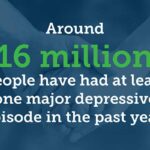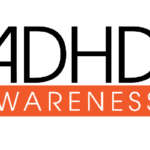Child and Adolescent Psychiatry, Ages 14+
Dr. Bijoy Mathew in our Sudbury office provides child and adolescent psychiatry services
Dr. Mathew is Board Certified in both Psychiatry and Child and Adolescent Psychiatry and treats adults and adolescents ages 14 and up. Dr. Mathew is a warm, knowledgeable, experienced clinician who is committed to his patients’ wellness through building strong collaborative relationships.
Child and Adolescent Psychiatry Services
Mental health issues are common in adolescence, a time of significant growth and change that can lead to stress, depression, anxiety, and other mental health issues. Such issues include, but are not limited to, depression, anxiety, and ADHD. According to a recent 2023 CDC study, poor mental health is a problem for adolescents. Nearly one-third reported symptoms of poor mental health, and 42% of students felt persistently sad or hopeless in 2021.
Parents frequently become concerned when their child or adolescent struggles to deal with situations, experiences sadness, struggles academically and/or socially in school, suffers from insomnia, or experiences conflicts with family and friends.
It is crucial to recognize the importance of proper psychiatric care for mental health conditions in children and teenagers because these conditions can have a significant impact on their daily lives and overall well-being.
Without proper treatment, mental health conditions can lead to problems in social interactions, academic performance, and family relationships. Early intervention is particularly critical in children and teenagers because mental health conditions can be more responsive to treatment when addressed early and can help prevent more severe mental health issues from developing in adulthood.
Child and Adolescent Mental Health Conditions
Mental health disorders among children are characterized by significant changes in the way children typically learn, behave, or handle their emotions, causing distress and problems getting through the day. Among the more common mental health disorders that can be diagnosed in childhood are attention-deficit/hyperactivity disorder (ADHD), anxiety, depression, and disruptive behavior disorders.
ADHD in Children, Teens, and Young Adults
ADHD is a neurodevelopmental disorder that affects a person’s ability to sustain attention, control hyperactivity and impulsivity, and regulate mood. Children and adolescents diagnosed with ADHD often experience difficulties in academic and home settings, such as paying attention, focusing, retaining information, forgetting things, responding to directions, sitting still, and controlling impulsive behaviors.
If you are concerned that your child may have problems with attention, hyperactivity, or impulsivity, it is important to seek professional help. These symptoms could be signs of ADHD, which is a treatable neurodevelopmental disorder. A healthcare provider or mental health professional can evaluate your child and help determine the best course of action. With proper diagnosis and treatment, your child can learn strategies to manage their symptoms and improve their daily functioning.
Anxiety in Children, Teens, and Young Adults
All children and teenagers experience some anxiety, which is normal and expected. However, excessive worry may interfere with activities and cause significant distress, which could be a sign of an anxiety disorder. Anxiety disorders are common in children and teenagers and can have a significant impact on their daily lives, including school performance, social interactions, and overall well-being.
If left untreated, anxiety disorders can lead to more severe mental health issues in adulthood. Therefore, it’s important to seek professional help if excessive anxiety is interfering with a child or teenager’s life.
Types of anxiety in children
Depression in Children and Teens
Common symptoms of depression in children and teenagers:
It’s common for people to feel sad or down sometimes, and it’s a normal part of growing up. But when kids or teenagers feel consistently sad, irritable, lose interest in things they used to enjoy, and these feelings persist for days, it could be a sign of depression. Depression in teenagers is common, and more than one in seven teens experience depression each year.
- Feeling or appearing depressed, sad, tearful or irritable
- Not enjoying things they used to
- Spending less time with friends
- Changes in weight or appetite
- Sleeping more or less than usual
- Changes in weight or appetite
- Feeling tired or lack of energy
- Feeling like everything is their fault
- Feelings of worthlesslessness and not being good at anything
- Trouble with focus or concentration
- Not caring about school or academic difficulties
- Physical complaints such as headaches or stomachaches
When To Seek Help For Your Child or Teen
Parents are usually the first to recognize changes in their child’s behavior or mood, but taking the first step toward seeking professional help can be difficult. According to youth.gov, an average of 17 percent of young people experience an emotional, mental, or behavioral disorder and the onset for 50% of adult mental health disorders occurs by age 14.
Signs and Behaviors That May Indicate It’s Time To Seek Help
- Decline in school performance
- Poor grades in school despite trying very hard
- Severe worry or anxiety, as shown by regular refusal to go to school, go to sleep or take part in activities that are normal for the child’s age
- Frequent physical complaints
- Changes in sleeping and/or eating habits
- Extreme difficulties in concentrating that get in the way at school or at home
- Depression shown by prolonged negative mood and attitude, often accompanied by poor appetite or difficulty sleeping
- Severe mood swings
- Strong worries or anxieties that get in the way of daily life, such as at school or socializing
If parents notice any of these symptoms, it is important to seek assistance from a qualified mental health professional.
Early intervention and treatment can help prevent the problem from becoming more severe and improve outcomes for the child or teenager. A mental health professional can help determine if the child or teenager is experiencing a mental health condition and develop a treatment plan tailored to their specific needs.
Children and teenagers can be treated with therapy, medication, or a combination of the two. Please call 978-252-0873 or contact us for a confidential evaluation today.
Request Your Confidential Evaluation Today
We know that taking the first step can be difficult.
Whether this is your first time seeking psychiatric care or if you are seeking a new provider, Novum Psychiatry can help. Our team of psychiatrists and therapists are committed to understanding your unique experience and working closely with you on a treatment plan to maximize the quality of your life.









